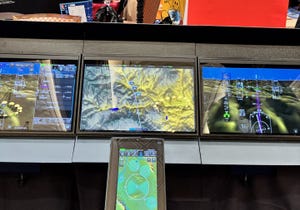AI-Powered Robotic Humanoid Hands Development Funding Secured
Swiss startup Mimic has raised $2.5M for its robotic hands that are designed to be used with off-the-shelf robotic arms

Mimic, a Swiss-based startup, has thrown its hat into the ring of humanoid robotics with its latest funding round to develop generative AI-powered robotic hands.
The company, a spin-out of the research university ETH Zurich, said it is “challenging U.S. dominance” in the humanoid robotics market.
Mimic closed its funding round with $2.5 million. It was led by Swiss investor Founderful, with participation from German-based fund another.vc, UK-based Tiny.vc and several angel investors.
The funds will be used to further develop the team’s generative AI platform for robotic manipulation, with the aim of creating next-generation robotic hands and arms for increasingly dexterous tasks.
The robotic hands are designed to be universally deployable and compatible with off-the-shelf robotic arms to allow full scalability. The hands use generative AI to learn from watching human workers perform tasks, imitating the actions shown without needing extensive programming to understand each task.
The design responds to ongoing labor shortages causing businesses to turn to automation and robotics, driving a growing demand for the technology to have enhanced handling capabilities.
“Mimic plans to ease these shortages with dexterous, human-like robotic hands that fit seamlessly into existing manual labor workflows, driven by state-of-the-art AI models trained directly from human demonstrations,” according to the company.
Co-founder Stephan-Daniel Gravert said the company’s focus on robotic hands comes from the fact that in most industrial use cases, workers are stationary so robots in that space do not need mobility.
“That’s why we focus data-collection and hardware ingenuity on a universal robotic hand,” he said.
The team said potential applications range from supermarkets, industrial baking and gastronomy to manufacturing, recycling and pharmaceutical lab automation.
“Conventional automation leaves a huge gap of tedious, low to medium volume manual labor tasks that often fall under the table because they are too complex or not economical to automate,” said co-founder Stefan Weirich.
“For companies from retail to manufacturing, it becomes increasingly harder to find the right staff for these tasks. Taking AI-driven robotic manipulation to the next level, we can now address these challenges with unparalleled flexibility and ease of use.”
The team said it expects to launch the robotic hands commercially later this year.
About the Author
You May Also Like








